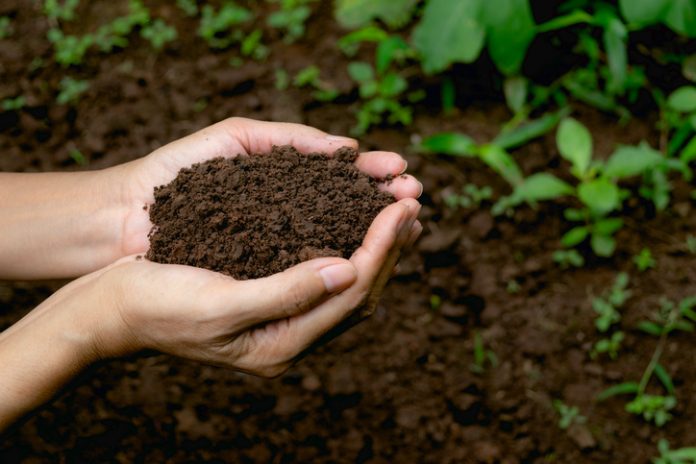California is joining four other states that allow the composting of human corpses, an alternative to cremation or burial, to protect the planet from climate change.
California followed Colorado, Oregon, Vermont, and Washington in legalizing human composting when Gov. Gavin Newsom signed AB 351 into law on September 18.
California Assemblywoman Christina Garcia (D), the bill’s sponsor, said if all residents opted for composting over cremation, “the state would see 2.5 million fewer metric tons of carbon within a decade; that’s the equivalent of energy output required to power 225,000 homes for a year.”
The California law will go into effect on January 1, 2027, after a licensing scheme and health regulations are in place.
The New York State Legislature has also passed a human-composting bill (A382), which Gov. Kathy Hochul had not signed into law as of press time.
Converted to Fertilizer
The process of composting, or natural organic reduction (NOR), involves placing a human body in a contained vessel and covering it with organic material such as wood chips, alfalfa, and straw to accelerate the decomposition process, according to the California Assembly Floor Analysis.
The body undergoes “mixing at several intervals,” and after 30 days, it is broken down, including bones and teeth. Nonorganic materials such as dental and surgical implants are removed.
“The transformation results in soil—defined as ‘reduced human remains’ under this bill—that is dark brown in appearance and considered safe for disposal,” which can then be used as “a soil amendment for trees or plants,” states the analysis.
‘An Area of Conscience’
The practice of composting bodies raises religious and ethical concerns, wrote John M. Grondelski in Crisismagazine.comon November 2.
“The ‘recomposting’ perspective sees man as being raised up by being turned back into soil,” wrote Grondelski. “Judaism and Christianity still see value in what had been a man; recomposting sees value in what will be topsoil.”
How we dispose of the dead should be a personal matter with limits, says Heidi Klessig, M.D., a retired anesthesiologist and founder of respectforhumanlife.com, a website that discusses the ethics of live organ transplants.
“We have freedom in how we dispose of our dead as long as we don’t stumble on one another,” Klessig told Health Care News. “For example, we probably shouldn’t throw our dead into volcanoes, because of the association with pagan practices. For me, composting would fall into this category, but I wouldn’t preclude this practice for others. It’s an area of conscience in which we have freedom and in which we should respect that freedom of conscience for others.”
‘Another Way to Devalue Life’
Governments could transform composting from an option into a demand, says Grondelski.
“[W]hile ‘recomposting’ advocates (and their more radical allies pushing ‘alkaline hydrolysis’) now talk about ‘choice,’ when will the ‘choice’ be compulsion?” wrote Grondelski. “In the name of public health, Gavin Newsom imposed on Californians some of the most stringent COVID restrictions of any state. In the name of the ‘climate catastrophe,’ when will ‘choice’ shift to ‘choice with the government’s finger on the scale’ to ‘required’?”
“The religion of Mother Earth now supersedes all cultural decency,” wrote Marilyn Singleton, M.D., J.D. in an article posted in August 2019 after the state of Washington approved the composting of human corpses.
“We knew it would only get worse,” Singleton told Health Care News.
Singleton says there is now widespread contempt for life at the beginning, with infants, and now at the end, with the elderly.
“We store our elders in nursing homes, routinely offer hospice care before offering treatment options,” Singleton wrote. “Human composting is yet another way to devalue life—we are the same as kitchen scraps that don’t fit in the garbage disposal.”
‘Ethically Abhorrent’
Reducing human remains to a commodity in hopes of saving the Earth is absurd, says Tom Harris, executive director of the International Climate Science Coalition.
“Composting of the human body to help ‘stop climate change’ is both ethically abhorrent and scientific nonsense,” said Harris. “It is repugnant because it reduces the remains of a previously living human being to a material resource for which no respect or reverence is due.
“Treating the human body as simply a resource in this way is also a slippery slope because it opens the door to further abuses such as cannibalism, a practice that has been nearly universally condemned throughout history,” said Harris. “Composting the human body shocks and appalls most people today,” said Harris.
Harris says NOR could be considered a felony punishable by up to seven years in prison and a fine of $8,000 in Oklahoma, citing OK Stat 21-1161 (2014) regarding the desecration of a human corpse.
“The practice is defined as ‘any act committed after the death of a human being including, but not limited to, dismemberment, disfigurement, mutilation, burning, or any act committed to cause the dead body to be devoured, scattered, or dissipated,’” said Harris. “California’s new law certainly appears to fit within this definition and should be repealed forthwith.”
‘Entirely Without Merit’
There is no environmental benefit in composting corpses, says Harris.
“The idea that human activity is responsible for significant climate change is not backed by reputable science,” said Harris. “Consequently, the rationale behind the new law—to reduce so-called ‘carbon emissions’—is entirely without merit.”
Bonner Russell Cohen, Ph.D., (bcohen@nationalcenter.org) is a senior fellow at the National Center for Public Policy Research.
See Doctors Have a Maccabre Way of Harvesting Organs
This article was updated on December 19, 2022.




















